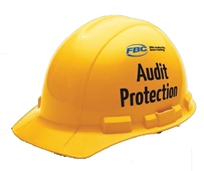Last updated: May. 14, 2014
 Has CRA come calling? You may have been chosen by CRA for a tax audit because certain expenses look high or your reported income seems too low.
Has CRA come calling? You may have been chosen by CRA for a tax audit because certain expenses look high or your reported income seems too low.
It could just be the industry you are in is a target or perhaps CRA is auditing a friend, family member or supplier and want to ensure payments you made are being reported by other people and vice-versa.
5 Tips That Will Help You Survive a CRA Tax Audit
1. Make sure you have good records.
Up-to-date bookkeeping and records with supporting invoices and receipts to prove income and expenses are a must. Supporting records must be kept for 6 years from the time you file your tax returns.
2. Ask for an extension when the CRA auditor calls.
You may receive a phone call from a CRA auditor wanting to come the next day to perform an audit. (They don’t typically expect you to say yes.)
With a good reason (busy season or busy timetable) you can ask for an extension.
Like many business owners, you may have a tax preparer or bookkeeper and want to schedule them to sit in on the audit.
You’ll also want time for you and your bookkeeper to gather your records for the CRA auditor. The easier you make it for the CRA auditor the quicker they’ll be done allowing you to get back to business sooner.
3. Ask the tax auditor what years and what business is being audited.
Usually the CRA auditor will look at 2 or 3 tax years. An audit can only go back 4 years unless fraud is suspected, in which case they could (theoretically) go back indefinitely.
If you have multiple businesses or streams of income, clarify which business is being audited.
Generally the CRA auditor won’t look at records for the current tax year that hasn’t been filed yet. Only provide records for the years that the CRA auditor has requested.
A tax audit can take 3 to 4 days. The longer it takes the CRA auditor the harder they will look. So by providing exactly what the auditor asks for should make it quicker and easier for them and you.
4. Be polite and helpful (just not too helpful).
Provide an empty desk in a quiet corner or empty office. Instruct staff that any requests from the auditor should be directed to you, your bookkeeper or your tax preparer.
Provide the information that the CRA auditor asks for. If you don’t know the answer to a question, defer it to your tax preparer.
Again, the longer it takes for the auditor to find the information, the more the auditor will look to justify the time spent on the audit.
5. Ask the auditor what changes will be made as a result of the audit.
If the CRA auditor feels that the investigation warrants any changes to your taxes ask for an explanation.
Review the changes with your tax preparer and discuss whether or not to challenge the outcome. Discuss the changes with the auditor and explain your position.
Try to have your tax preparer and the CRA auditor come to an agreement before a notice of reassessment is filed.
Remember the saying: a good defense is the best offence. Good records and bookkeeping will prove your best defense to explain what you did and how it complies with the Income Tax Act.
By having a tax plan in place before your tax returns are prepared you’ll be able to survive a CRA tax audit.
Top 6 Audit Triggers and How to Avoid ThemFind out what are the top 6 audit triggers and what you can do to avoid them. |
